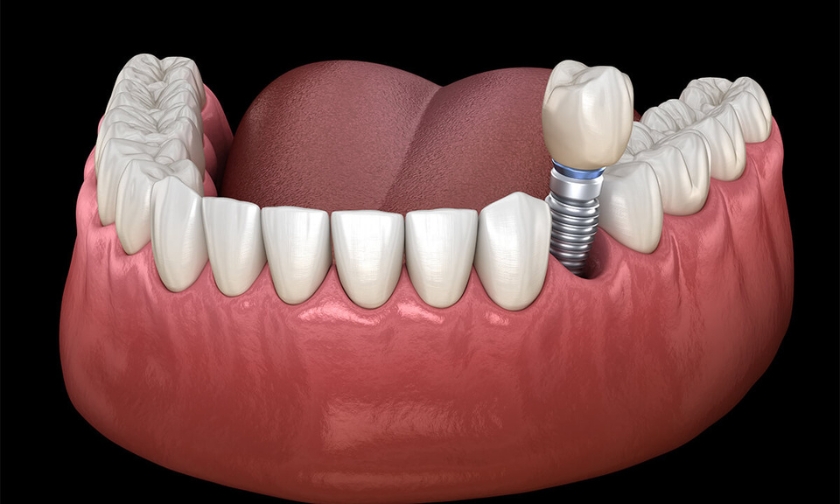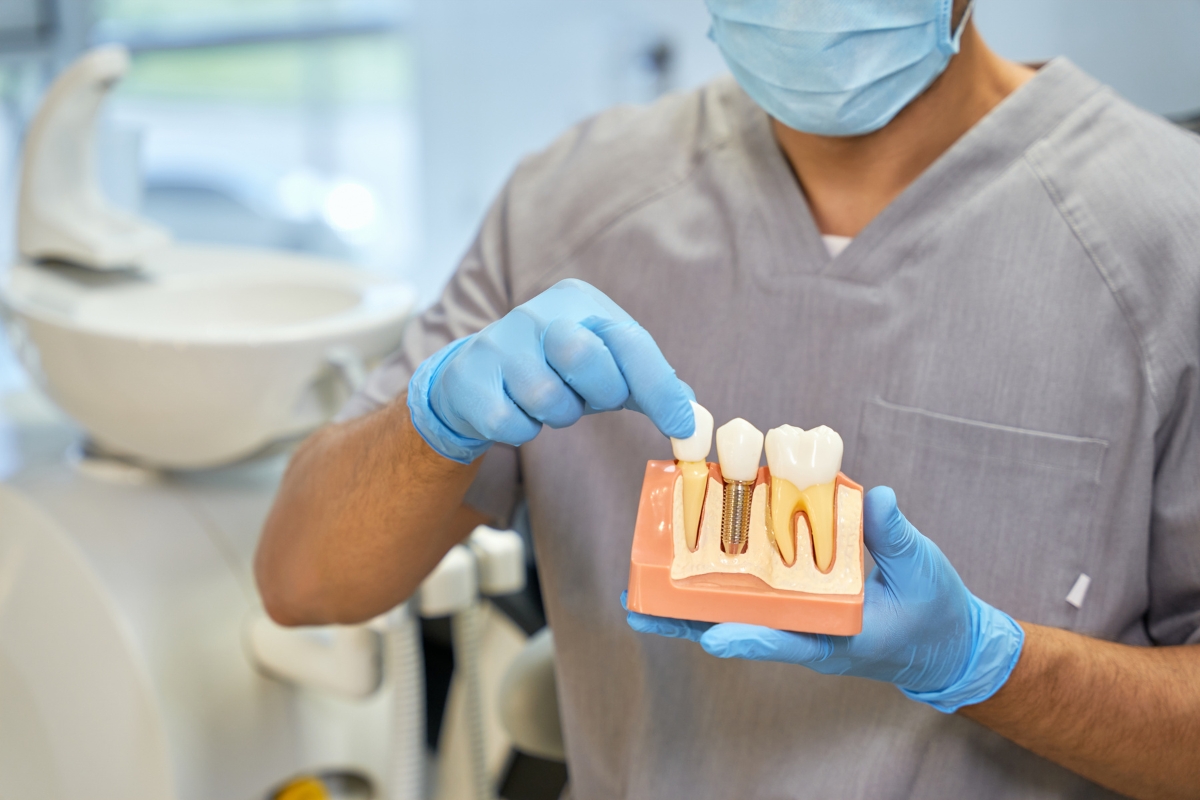
The idea of dental implant surgery can make you feel very anxious. You’re probably picturing scalpels, drills, and a lengthy recovery filled with discomfort. This procedure involves placing a titanium post into your jawbone. However, it is definitely not as scary and painful as you might think.. So, what’s the real deal with pain?
Read this blog to learn how much pain you can actually expect from this particular dental surgical procedure.
How Much Does A Dental Implant Surgery Hurt?
Pain is subjective. In general, most people can easily manage the pain, and many do say that it hurts much less than tooth extractions. Here are the steps
- Local anesthesia is used to numb the surgical area.
- You’ll feel pressure like someone is pressing firmly on your gums.
- Many dental offices can offer you light sedation options, so you can feel relaxed or even sleep through the procedure.
What Happens After the Anesthesia Wears Off?
After the sedation wears off, things might get uncomfortable, but not unbearable. You might experience:
- Mild to moderate soreness in your jaw and gums
- Swelling around the implant area, especially within the first 72 hours
- Slight bruising on the cheek or jaw, depending on where the implant is placed
These side effects of surgery for dental implants in Spokane,WA subsides within 3 to 5 days, and they’re usually treatable with over-the-counter pain medications.
Factors That Affect Dental Implant Pain Worse
The perception of pain varies from one person to another. Here are a few factors that might regulate your feeling of pain:
- If you’re getting a single implant versus multiple implants and don’t need additional procedures like bone grafting, it might hurt less.
- Follow the dentist’s post-op instructions closely and avoid smoking or anything that slows healing to avoid complications and pain.
- In case you had multiple posts placed in one session, you might experience more pain after the sedation wears off.
- One may also feel pain because of irritation or infection at the operation site right after the dental procedure.
Pain Timeline: What to Expect Day by Day
Knowing what’s normal can help you stay calm during recovery. Here’s a general breakdown:
- Day 1: You might feel a dull ache or throbbing. Ice packs and ibuprofen usually do the trick.
- Days 2–3: Swelling may increase a bit. Bruising could appear on your cheek or under your jaw. Focus on having soft foods and extra rest.
- Days 4–7: Pain and swelling might start to fade. You may still feel tenderness if you touch the area or chew nearby.
- Week 2 and Beyond: Any remaining discomfort should be minimal. The implant site continues healing under the gumline.
You can return to your normal activities within 2–3 days, especially if your dental implant surgery doesn’t require physical labor.
Is the Pain Even Worth It?
Wondering if the pain is even worth it? Remember that you are trading a few days of mild soreness for a permanent tooth replacement that looks, feels, and functions like the real thing. Unlike dentures or bridges, dental implants don’t slip, click, or require special adhesives. Once healed, they’re part of you.
Here are some of the other payoffs:
- Eating your favorite foods without worry
- Smiling without feeling self-conscious
- No more avoiding social situations.
This short window of discomfort will feel like a small price to pay for the long-term benefits.
Tips to Manage Discomfort Like a Pro
The recovery process doesn’t have to be a guessing game. Here are some tried-and-true ways to stay comfortable after dental implant surgery:
- Stick to soft foods for the first few days. Have soups, smoothies, mashed potatoes, eggs
- Use ice packs on the cheek for 15-minute intervals to reduce swelling
- Take pain-relieving medication as directed. Don’t wait until the pain kicks in
- Sleep with your head elevated the first few nights to minimize swelling
- Avoid hot, spicy, or acidic foods while the area is healing
- Don’t skip follow-up appointments. The dentist will want to make sure everything is healing properly and catch any issues early.
Still have questions? Totally normal. But if you’re tired of dealing with missing teeth or unreliable dentures, it might be time to talk to someone who can walk you through the process, without pressure or judgment.
Dentists are there to make your dental implant journey as smooth and painless as possible. Are you ready to restore your beautiful smile? Schedule a consultation today!


